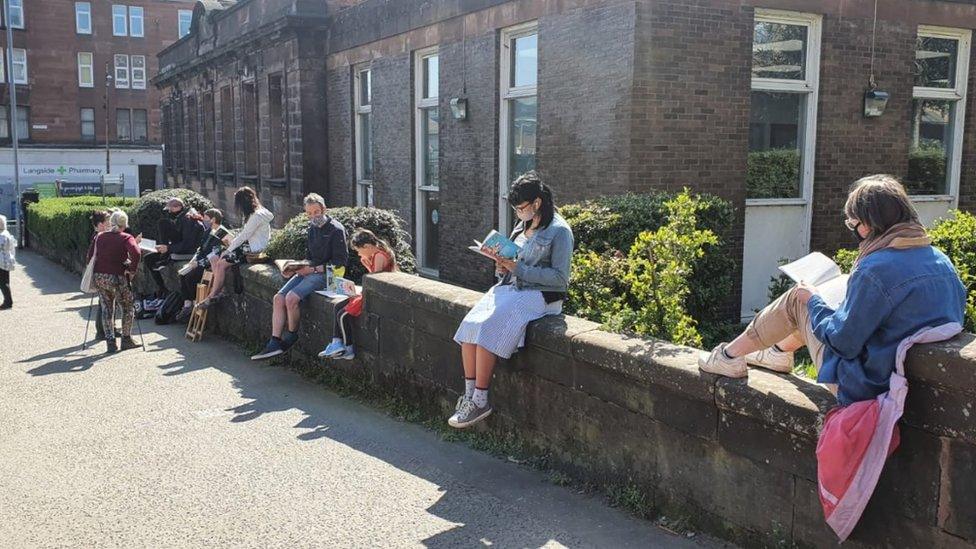Scottish library hours remain reduced post-lockdown
- Published
- comments
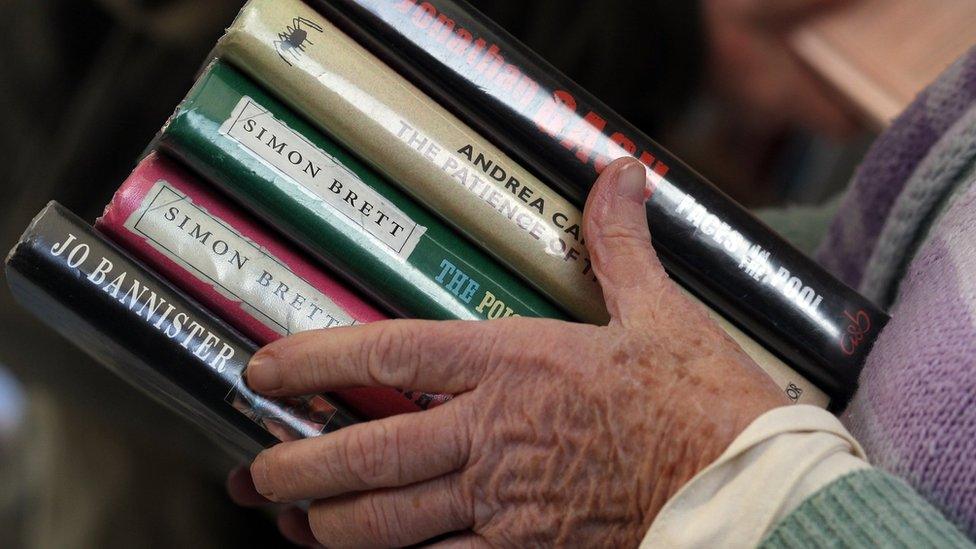
Many libraries have reopened on reduced hours across the country
Many public libraries in Scotland are operating reduced hours or are still closed four months after they were allowed to reopen.
Some providers say they simply do not have the money to return to a full service this year.
Scottish Library and Information Council (SLIC) figures show there is still no reopening information for 61 of the country's 481 public libraries.
It is launching a new five-year strategy for the service.
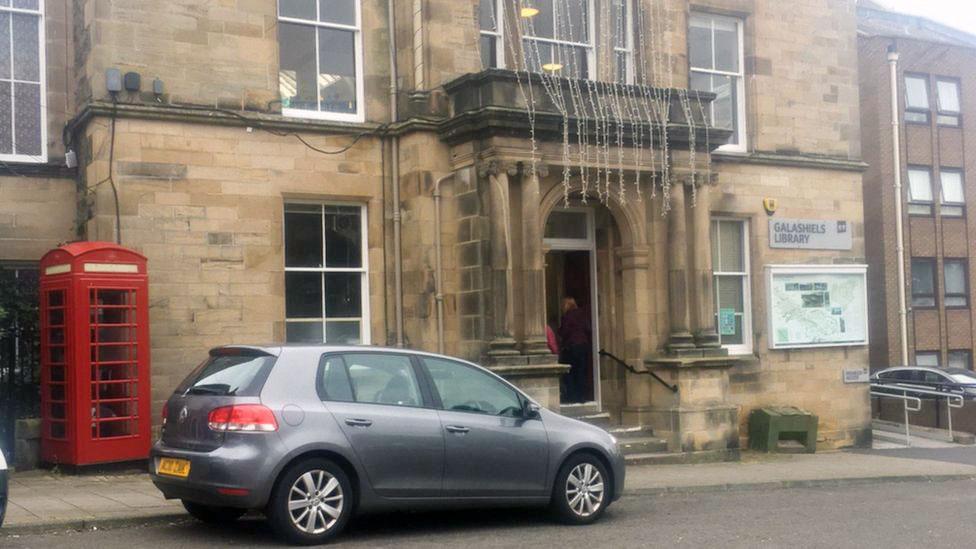
Galashiels Library reopened this month but with reduced opening hours
The relaxation of Covid restrictions has allowed libraries to reopen since April.
Galashiels Library, in the Borders, reopened this month having been shut since the first lockdown.
However, it is only open a third of the hours it used to be.
Lisa Haddow, who heads the service for Live Borders, said they did not have the funds to offer a full service this year.
She said there were no plans to fully reopen because the group - which runs libraries for Scottish Borders Council (SBC) - had suffered "quite a loss of revenue".
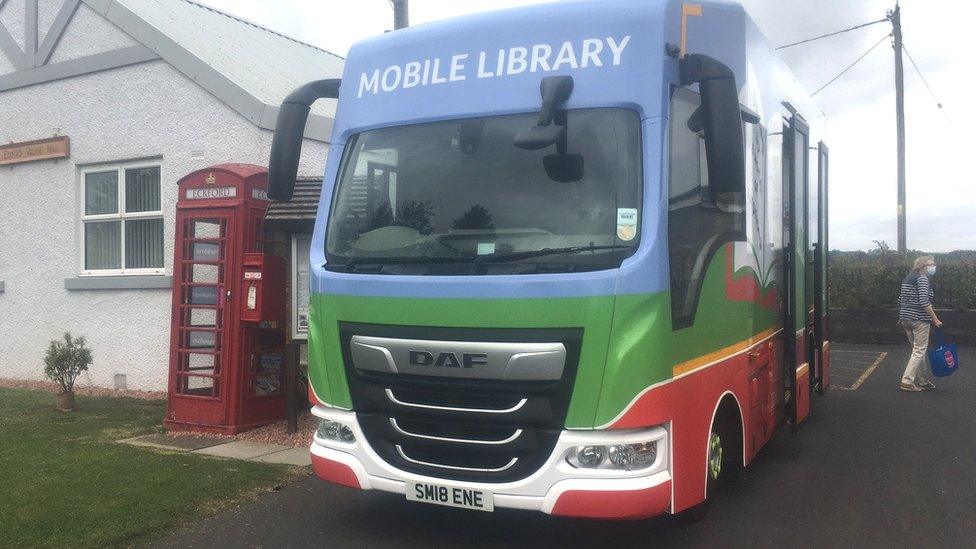
An "expanded mobile library service" is being offered in the Borders
"With this loss of income we're having to look at our finances very carefully," she added.
SBC said there would be more services next month and that the phased reopening of services was continuing in line with plans.
It said provision would continue to increase alongside "expanded mobile library services and other alternative provision".
People using the the library said they were relieved it was open again providing help for those who did not have computers, or need a wide range of services, but there were reduced hours.
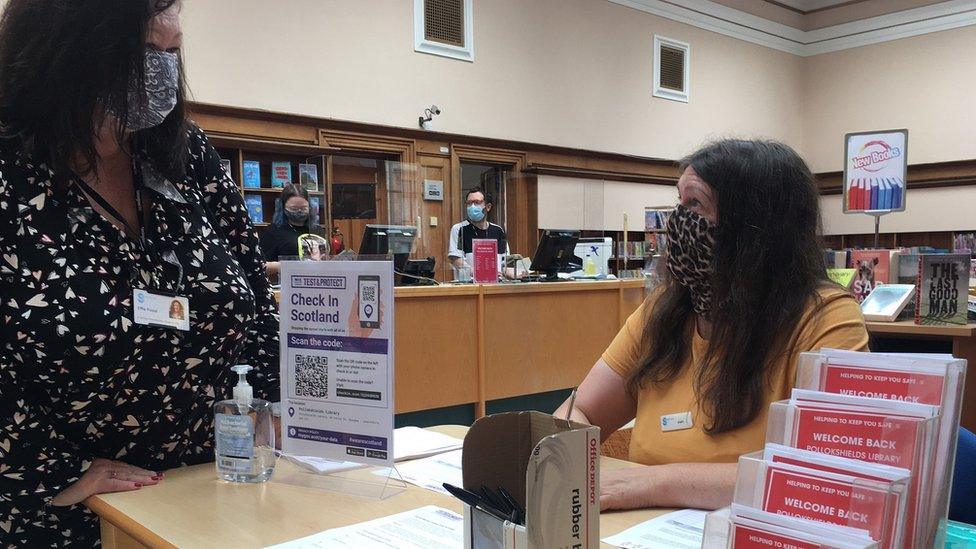
The return of library services has been welcomed by the communities they serve
"I know it's limited hours but hopefully that'll extend as the months go on but it depends on what money they have as well what they have to spend it on," said Brenda Smith from St Boswells.
"I suppose they've got to use the money the best way and if it means they've got books - even though it's only open for a shorter time and you know the times - then you just adjust accordingly don't you?" added Maureen Buchan from Tweedbank.
"It's better than them running out of money and having to shut, so I can cope with shorter hours so long as there's books."
Latest figures show most of Scotland's public libraries have reopened, at least partly, with another dozen due to reopen soon but there is still no information for dozens of sites.
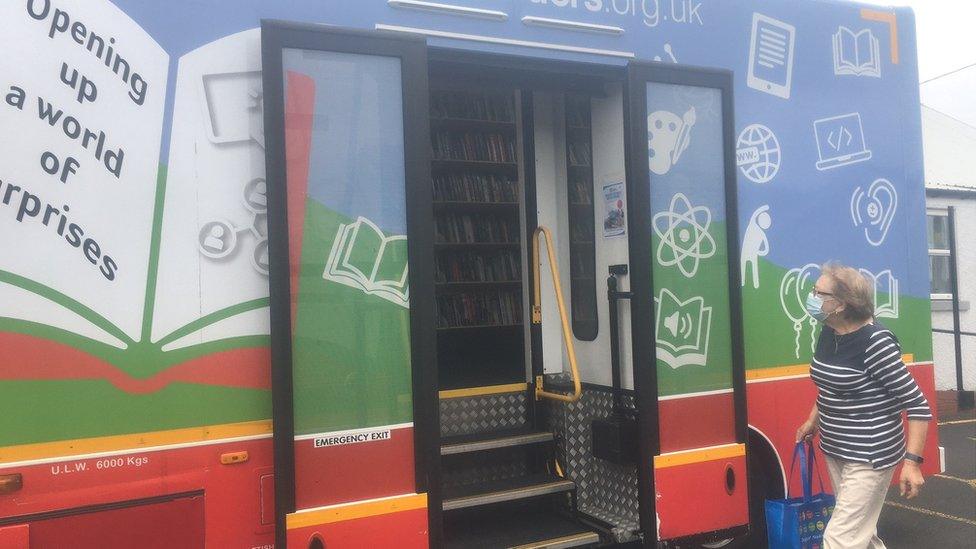
A strategy for libraries across Scotland has just been launched
Pollokshields Library in Glasgow has just re-opened for four hours to the relief of many locals like Ahmed Tanweer and Kate Cotter but they still have concerns.
"We've missed it, we've petitioned for it, and the whole community's united behind it," said Mr Tanweer.
He said the site was "used continuously" and he did not understand the delay in reopening and why all libraries had not returned.
"I'm really aware it's a resource we have to keep using," said Ms Cotter.
"If you don't use it you do lose it and we can see the hours have been reduced and therefore we've got to keep coming in."
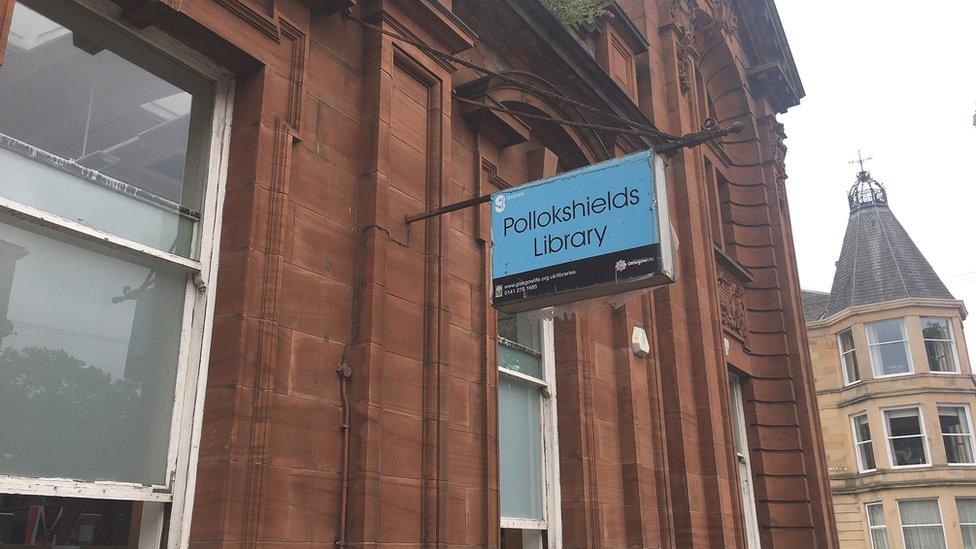
Pollokshields Library has just reopened following a long campaign
Head of communities and libraries for Glasgow Life, Andrew Olney, said efforts to reopen more sites were ongoing.
"We fully recognise people have concerns about the future but we're working hard with the council about how we can continue to develop the services," he said.
He said it was a "challenge" to reopen as it would require additional funding but it was looking at ways to secure that support.
Sean McNamara, from the librarians professional body CILIPS, said library funding must be protected locally and nationally to restore a full library service to every Scottish community.
"Libraries are a huge cost saver in the long term so for those short term savings they may be making by reducing services that has a long term impact on their communities," he said.

It comes as SLIC unveiled a new national strategy for Scotland's public libraries, external insisting they are vital for the country's recovery because they provide such a wide range of community services.
Culture Minister Jenny Gilruth said it was a "national vision for libraries" looking at their role in ensuring a "stronger post-pandemic future, while placing communities at the centre of its focus".
SLIC's Pamela Tulloch said it showed the part libraries played in supporting people with their well being and community needs.
In addition, she said they could encourage people to be "more active digitally", improve mental health and close the attainment gap.
"We also know they go some way to supporting people tackle social isolation and we also see them reducing inequality and I think that's really important as we start to move forward as a society," she added.
Related topics
- Published26 May 2021
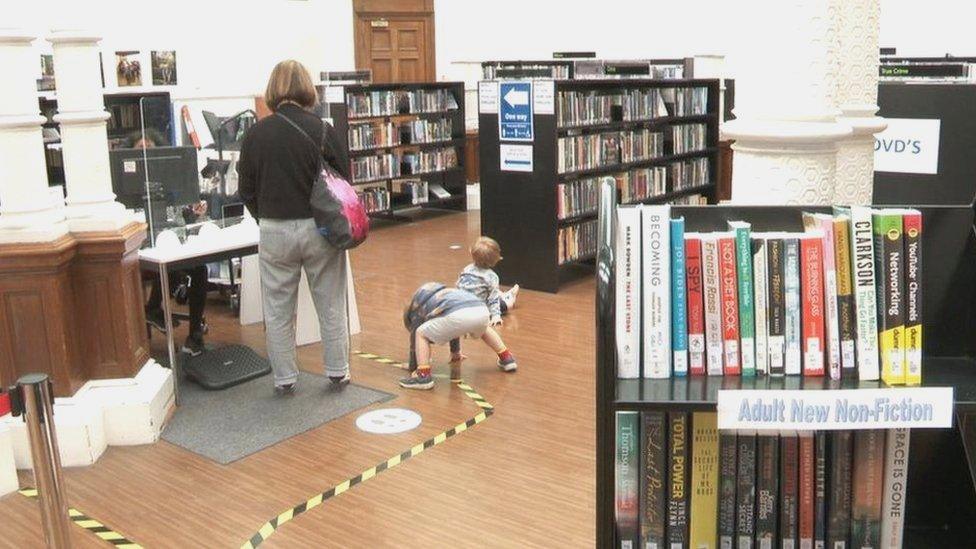
- Published26 April 2021
